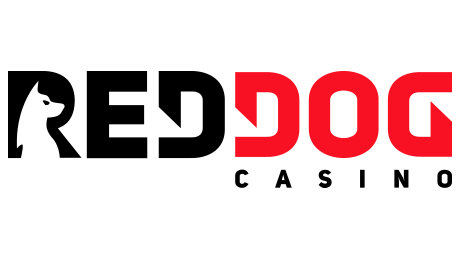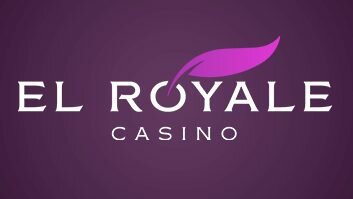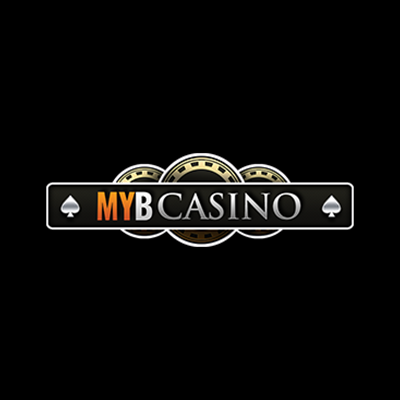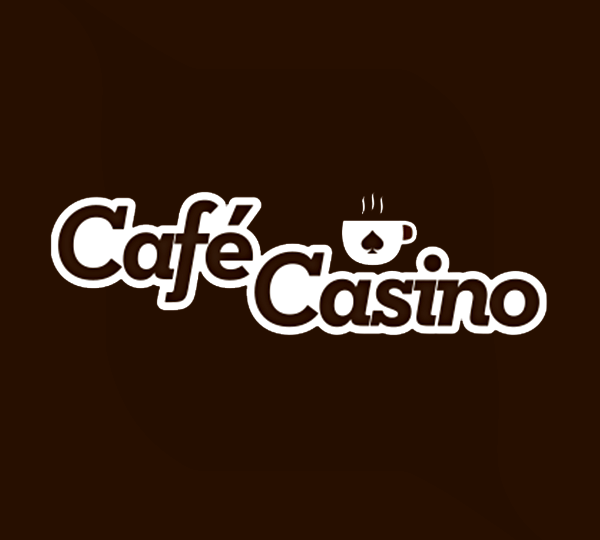Nebraska’s most well-known city is also one of the most well-known versions of poker, however, casino-style gambling is not abundant in the state. If we are being honest, there isn’t a whole lot going on in Nebraska. A major contributing factor to this is the fact that there are not many people and, as a result, not very many large population centers. Without those two factors, there isn’t a major market for gambling. In addition to this, gambling at casinos is considered to be illegal if it isn’t at one of the state’s 3 Native American casinos.
Though Nebraska is the home of loads of rich casino history, especially from the 1800s, that is not the case today. In fact, it does not look Nebraska’s casino laws are going to be changing anytime soon. The simple fact of the matter is that the 39th of 50th states as far as the population is concerned is not going to be seen as a lucrative gambling destination, and there is no real push to change this.
Top Rated US Casino Sites
| Casino | Bonus | Play | Review | Games | Deposit | Device | Rating | |
|---|---|---|---|---|---|---|---|---|
| 1 |  |
Up to USD5,000 Welcome Bonus | Visit Casino | Read Review | Slots, Table Games, Bingo, Poker 24/7 | Visa, Mastercard, Bitcoin, Neosurf | Mobile, Desktop | 90 |
| 2 |  |
Free (No deposit required) | Visit Casino | Read Review | Slots, Table Games, Mobile Compatible | Visa, Mastercard, Bitcoin, Neosurf | Mobile, Desktop | 100 |
| 3 |  |
280% Welcome Offer | Visit Casino | Read Review | Slots, Table Games, Mobile Compatible | Visa, Mastercard, Bitcoin, Neosurf | Mobile, Desktop | 80 |
| 4 |  |
250% Deposit Match + 50 Free Spins | Visit Casino | Read Review | Live Dealer, Slots, Table Games | Visa, Mastercard, Bitcoin, Neosurf | Mobile, Desktop | 100 |
| 8 |  |
0 Poker Bonus, 3,000 USD Casino Bonus, & 0 Sportsbook Bonus | Visit Casino | Read Review | Poker, Casino, Sportsbook | Visa, Mastercard, Bitcoin, Crypto | Mobile, Desktop | 90 |
| 5 |  |
200% up to 1,000 USD Welcome Bonus | Visit Casino | Read Review | Live Casino Games, Mobile Compatible | Visa, Mastercard, Bitcoin, Neosurf | Mobile, Desktop | 90 |
| 7 |  |
200% up to 1,000 USD Welcome Bonus | Visit Casino | Read Review | Slots, Table Games, Poker 24/7 | Visa, Mastercard, Bitcoin | Mobile, Desktop | 100 |
| 6 |  |
100% up to 1,000 USD First Deposit Bonus | Visit Casino | Read Review | Slots, Table Games, Mobile Compatible | Visa, Mastercard, Bitcoin, Neosurf | Mobile, Desktop | 80 |
Nebraska Online Casinos
Nebraska Casinos
Iron Horse Bar
Lucky 77
Native Star
Ohiya
Gambling in Nebraska
Gambling establishments in Nebraska have rules that are somewhat restrictive. For example, the nearby tribal casinos aren’t able to offer anything beyond Class II and III amazing games. Additionally, charity gaming functions and pari-mutuel wagering are permitted. Occasionally, surprises happen here. Nebraska also has a state-run lottery, yet you won’t find any commercial casinos within its borders.
The governing lawmakers haven’t approved any dedicated iGaming guidelines and are quite unlikely to do so soon, so the majority of local internet gambling fans simply stick with offshore options. The existing situation might persist for years.
Casinos in Nebraska
With gambling establishments in Kansas, Colorado, South Dakota, Iowa, and Wyoming, Nebraska’s absence of casinos is out of place compared to its neighbors. While many of the state’s websites advertise casinos, all of those are Class II gaming facilities, and with slot machines expressly forbidden by law, all “video gaming machines” are video keno, video bingo, and video poker.
Even the casinos that operate on tribal land are restricted in what they can offer their customers. The three main tribal casinos in operation are:
Iron Horse Bar & Casino (Emerson): 89 video gaming machines
Native Star Casino (Winnebago): 83 video gaming machines
Ohiya Casino & Resort (Niobrara): Video gaming machines and bingo two nights a week
The Rosebud Casino’s address is Valentine, Nebraska, but it’s actually located right across the border in South Dakota, allowing it to host 250 slot machines (the maximum allowed) and blackjack.
Throughout the entire state, there are an estimated 900 video gaming machines.
In a deviation from most other states, the minimum legal age to play at any of Nebraska’s casinos is 19.
Online casinos are forbidden by law.
Native American/Tribal Casinos
As it stands, the only type of casino that is available in Nebraska are those that sit on Native lands. The reason why these casinos exist while those that are owned and operated by private companies cannot is thanks to a Federal Act that was passed in the late 1980s. Unfortunately, Nebraska casinos are not able to offer a wide array of games like what you might find in Las Vegas. So even though the state’s casinos may look and feel like the casinos on the Vegas Strip, they are lacking in a number of different key ways.
Nebraska Sportsbooks & Sports betting
Considering Nebraska’s reluctance to liberalize its gambling laws, the Supreme Court’s ruling that permitted states to make their own decisions regarding gambling legalization is unlikely to affect the Cornhusker state.
Governor Pete Ricketts commented on this decision: “Sports betting is still illegal here in Nebraska and we have no plans to change that.”
One chief issue for Nebraska is that Omaha is the annual home of the College World Series. There is a fear that if sports gambling were to become legal in the state, the NCAA would move the event, and Omaha and the surrounding communities would lose the $70 million in annual economic impact – far greater than the estimated impact of legalized sports betting.
Fantasy sports gambling
In early 2017, state Senator Tyson Larson introduced LB 469, the Fantasy Contests Act, which was endorsed by both FanDuel and DraftKings. Many of the smaller DFS operators were against the bill as its regulations would shut them out of the market.
Ultimately, the bill was killed in April of 2018, and no other DFS legislation is on the horizon. While DFS hasn’t been legalized in Nebraska, it isn’t illegal either, and all companies continue to operate inside the state without fear of prosecution.
Like in many other states, DFS continues to exist in Nebraska in the legal gray area between regulation and illegality.
Animal racing
Horse racing is the most widely accepted form of gambling in Nebraska.
You can attend live horse races at the following venues:
- Fonner Park (Grand Island): 31 days of live thoroughbred racing from February to May
- Lincoln Racecourse (Lincoln): Three days of live racing every September
- Horseman’s Park (Omaha): Nine days of live racing in May and June
- Columbus Exposition & Racing (Columbus): 14 days of live racing in August and September
The Nebraska State Racing Commission also permits one day of racing each at Fairplay Park in Hastings and Atokad Park in South Sioux City.
Off-track betting is legal at the four racecourses listed above, although as the calendar ticked over to 2018, it came close to becoming illegal. Right before the expiration of the law allowing OTB at racecourses that hold at least one live day of racing, the Racing Commission reversed course and continued the status quo.
You can bet on simulcast racing from across the country, but only at one of the four regular tracks in the state.
You must be at least 19 to place a pari-mutuel wager.
There is no greyhound racing in Nebraska.
Nebraska Poker Games
There was a time when poker was extremely popular in Nebraska – hence the variation of hold’em called Omaha.
However, times have changed, and poker is now illegal in the state. None of the casinos in Nebraska feature poker rooms, and there are no charitable gaming laws that allow poker. You can play in your house as long as no one needs to pay the host a buy-in. It’s also illegal to make money off home poker games.
Online poker is also illegal in Nebraska.
Lottery
Nebraska has hosted a lottery since 1993. Along with scratch-off tickets, the following draw games are available:
- Pick 3
- Pick 5
- MyDay
- 2by2 (multi-state)
- Lucky for Life (multi-state)
- Mega Millions (multi-state)
- Powerball (multi-state)
Prizes from scratch-offs and draw tickets must be claimed within 180 days. Prizes above $5,000 carry a 5% state tax and 24% federal tax that is automatically withheld.
You must be at least 19 to purchase a lottery ticket in Nebraska.
Bingo
Along with bingo at the Ohiya Casino & Resort, Nebraska allows qualified non-profit organizations that have been in the state for at least five years to apply for and obtain a license to host charitable bingo games. A license is not required if there is no charge to play and the prize awarded is lower than $25.
The following regulations must be followed at licensed bingo games:
- Profits must be used for charitable, benevolent, humane, religious, philanthropic, or civic purposes only
- Profits may not be used for social or recreational purposes
- Prizes must not exceed $1,000 per game or $4,000 per bingo occasion
- All players must be at least 18 years old
Regular bingo games can be found in more than 60 Nebraska cities.
Nebraska Casino History
The history of casino gambling in Nebraska can be traced back to the 1800s, when folks moving out West founded the town. At that time, the town of Omaha was a hotbed of all things illicit. Whether it was the thriving prostitution industry or the many bars that fueled the town’s heavy drinking, Omaha quickly evolved into a gambling town. In fact, towns like Omaha back in the 1800s are a major contributing factor to why people nowadays associate all types of gambling with other illicit activities.
The casino industry in Omaha and other parts of Nebraska did well for the next few decades, however it always had ties to illicit organizations and figures. Eventually, the state did away with almost all forms of gambling. In the 1930s, Nebraska moved to legalize pari-mutuel betting at racetracks, but nothing more than that. This remains the case until the early 2000s, when it was decided that slot games would be legalized.
To this day, slots are the only type of casino gambling that can take place in Nebraska. So, while there are 3 large casinos across the state, the only type of gambling that takes place there comes in front of a slot machine or video poker machine. When it comes to traditional table games, those do not exist at the present moment. As we look towards the future, the honest opinion of experts is that Nebraska is not going to legalize any other type of gambling at any point in the near future. With millions and millions of potential revenue dollars streaming over the border to gamble at Iowa, it seems almost unfathomable that Nebraska is so conservative with regard to their approach to gambling, but that is exactly the case.
In addition to the casinos the state has, there are 6 racetracks where pari-mutuel gambling is available. Unfortunately, the most recent reports indicate that the racetrack industry in the state is on an almost steady decline.
Updated: 06.05.2025
